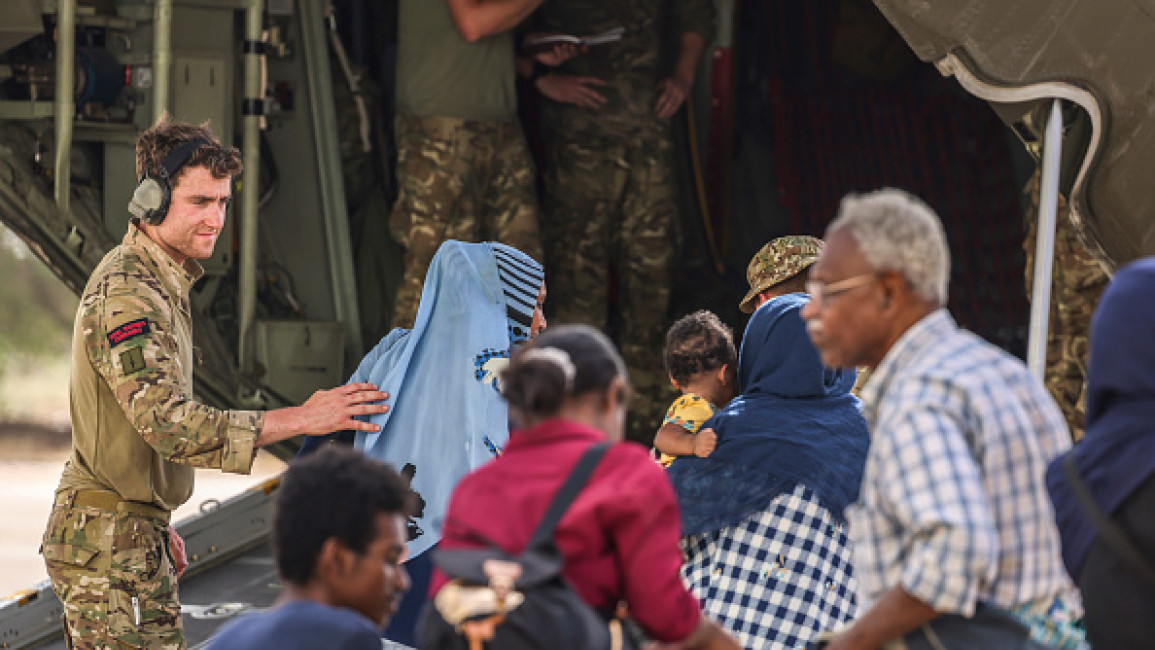UK touts 'very successful' Sudan airlift after final flight with 1,888 evacuated
The UK vowed Sunday to maintain support for Britons trapped in Sudan but said conditions had grown too dangerous to continue evacuation flights.
The final Royal Air Force (RAF) flight left the Wadi Seidna airfield north of Khartoum late on Saturday, four hours behind schedule, taking to 1,888 the number of Britons and their relatives evacuated since Tuesday.
"The evacuation that we've conducted is the longest and largest evacuation of any Western nation," Transport Secretary Mark Harper told Sky News.
"And so we've taken out 1,888 British nationals and their dependents, which I think is a testimony to a very successful evacuation effort.
"And we will continue providing consular support from Sudan," he said, noting that the Foreign Office had set up an office in Port Sudan for those seeking to escape by sea to Saudi Arabia.
The UK government denies it has abandoned anyone in Sudan, after it was accused by opposition parties of repeating the mistakes of its chaotic withdrawal from Afghanistan.
One Turkish aircraft was shot at in Sudan last week, Harper said, "demonstrating that that evacuation was not without risk, and we therefore can't stay there indefinitely".
"But we were clear with British citizens about the need to get to the airfield to evacuate".
Some 2,000 Britons in Sudan had signed on to a Foreign Office list, and anyone eligible was given until Saturday morning to reach the airfield for processing and boarding of the final flights.
After strong criticism at home, the government late Friday allowed Sudanese doctors working in Britain's crisis-wracked National Health Service to join the flights.
Sudanese doctor Abdulrahman Babiker, who works in a hospital in the northern English city of Manchester, was one of those refused a place at first before he was allowed to join an RAF flight to Cyprus.
"I am happy that I am finally in a safe place, away from a war and on my way back to the UK," Babiker told the BBC.
"At the same time I feel down that my family - my dad, mum, brother and sister - are still endangered by this deadly fighting in my country," Babiker added.
"I am thinking about them now and trying to work out what I can do to help them escape the danger zone".



